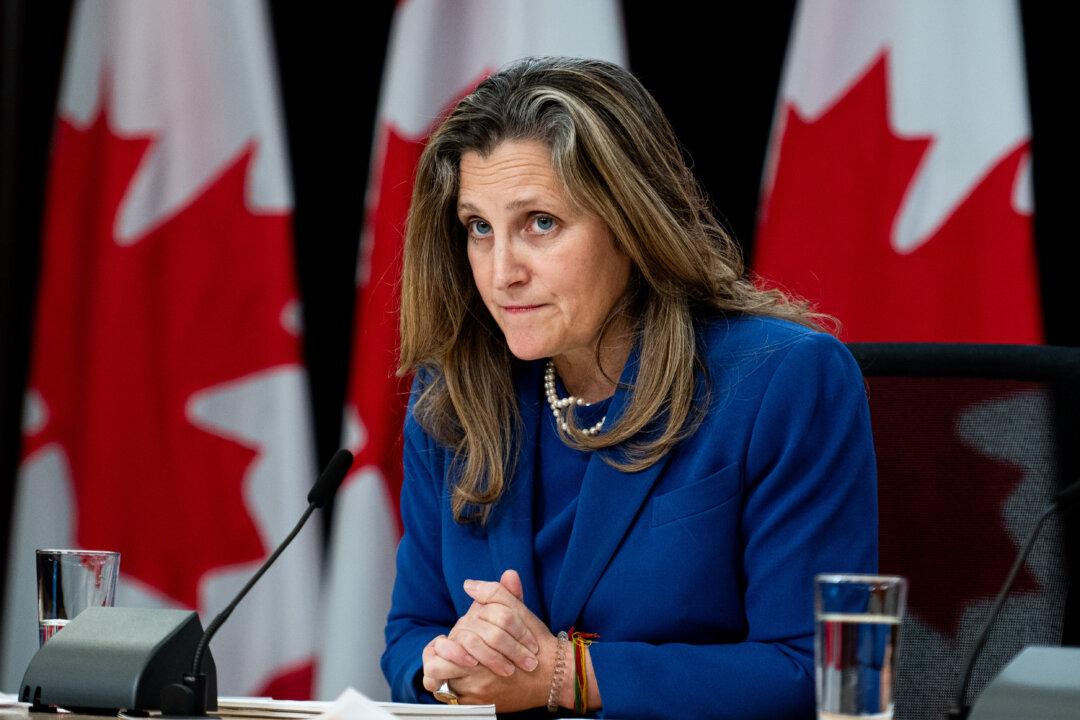The Liberal government is going to remove the cap that restricts Canadian pension funds from owning more than 30 percent of the voting shares of Canadian entities.
Deputy Prime Minister Chrystia Freeland said the upcoming fall economic statement will remove the cap on pension funds holding over $3 million in assets, allowing them to invest in Canadian entities with greater ease. Ottawa plans to consult with the provinces on how to treat provincially regulated pension plans.





